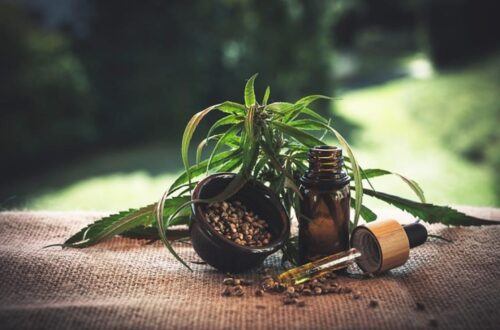Keeping our kids safe is always our top priority. It’s no surprise that more and more parents are seeking alternative ways to support their child’s health, especially when conventional methods fall short.
CBD, or cannabidiol, has become a popular topic in recent years, thanks to its potential benefits. But when it comes to our little ones, is CBD truly safe?
It’s essential to sift through the buzz and get to the heart of the matter. Let’s explore what science says, the potential benefits, and the risks, so you can make an informed decision for your child’s wellbeing.
Understanding CBD and Its Effects on Children
CBD is derived from the cannabis plant, but unlike THC, it doesn’t make you feel “high.” This is a major reason why it’s piqued the interest of parents looking for alternative treatments.
In children, CBD is often linked to helping with conditions like epilepsy, anxiety, and ADHD. There’s been some promising research, especially for epilepsy, where CBD has shown to reduce seizures significantly.
However, not all is crystal clear. The human body reacts to substances differently, and children are no exception. What works for one child might not work for another.
On top of that, the long-term effects of CBD use in children are still being studied. The short-term results seem promising, but we need to know more about how it affects growing bodies and minds over time.
Always approach CBD with caution. Consulting a healthcare professional should be your first step before considering it as an option for your child.
Research on the Safety and Efficacy of CBD for Pediatric Use
The world of scientific research is buzzing with studies focused on CBD, especially for pediatric use. One of the pioneering studies showed that CBD could significantly decrease seizure frequency in children with treatment-resistant epilepsy.
Beyond epilepsy, research on using CBD for anxiety and other disorders is in the early stages. Some smaller studies and anecdotal evidence suggest potential benefits, but larger, more thorough studies are needed to draw definitive conclusions.
Safety is a cornerstone of these studies. So far, most research indicates that CBD is generally well-tolerated in children. Side effects, if any, tend to be mild and can include symptoms like fatigue or changes in appetite.
Still, it’s crucial to remember that “generally well-tolerated” does not mean it’s right for every child. Each child’s unique physiology means they could react differently.
Experts also emphasize the importance of quality and dosage. Due to a lack of regulation, the market is flooded with products that aren’t always what they claim to be. This makes it essential to source CBD from reputable providers and to consult healthcare professionals for appropriate dosages.
The bottom line? While the research is promising, it’s still evolving. Keeping an eye on the latest findings and relying on medical advice will help ensure the safest approach if you’re considering CBD for your child.
Potential Benefits of CBD for Children’s Health
CBD is hailed for its potential benefits, and some of these might extend to children’s health. One of the primary areas of interest is its potential in managing epilepsy. For kids with certain types of epilepsy, CBD has shown to reduce the frequency and severity of seizures, which can be life-changing for both the children and their families.
Anxiety and Stress Relief
Another area where CBD could shine is in managing anxiety and stress. Some parents and doctors have observed improvements in children’s mood and behavior, particularly those dealing with severe anxiety or stress-related conditions. It’s believed that CBD interacts with receptors in the brain that regulate mood and stress responses.
Emerging evidence suggests CBD might help with sleep issues. For children who struggle with insomnia or have trouble getting a good night’s rest due to anxiety or other conditions, CBD might offer some relief by promoting relaxation and better sleep patterns.
Additionally, some studies are exploring CBD‘s anti-inflammatory properties. This could be particularly helpful for children with chronic pain or inflammatory conditions, providing a natural alternative for pain management.
While these potential benefits are promising, it’s important to proceed with caution. Always consult a healthcare professional before considering CBD for your child’s health. Research is ongoing, and staying updated with the latest findings ensures you make informed decisions for your child’s well-being.
Possible Risks and Side Effects of CBD in Pediatric Populations
As with any treatment, it’s essential to understand the potential risks and side effects of CBD for children. While CBD is generally considered safe, some side effects have been noted, particularly when taken in high doses or over long periods.
One common side effect is drowsiness. While this might be beneficial for children with insomnia or anxiety-induced sleep disturbances, it’s important to monitor how CBD affects your child’s alertness and overall daily function.
Gastrointestinal Issues
Some children may experience gastrointestinal issues such as diarrhea, reduced appetite, or nausea. These side effects can vary from mild to severe, and it’s crucial to watch for any changes in your child’s eating habits or digestive health.
CBD can also interact with other medications. If your child is taking any other prescriptions, particularly those for epilepsy or other chronic conditions, it’s important to discuss CBD with their healthcare provider to avoid any potentially harmful interactions.
Another concern is the long-term impact of CBD use. Since research on CBD in pediatric populations is still in its early stages, the long-term effects are not fully understood. This makes it all the more important to use CBD under medical supervision and with caution.
Lastly, the quality and purity of CBD products can vary significantly. Always ensure the CBD product is from a reputable source and has been tested for contaminants such as pesticides, heavy metals, and solvents.

Important Considerations for Parents Considering CBD for Their Children
If you’re thinking about CBD as a treatment option for your child, there are several important factors you need to consider. First and foremost, always consult with your child’s healthcare provider before starting any new treatment. They can help guide you through the process and ensure it’s a safe choice for your child’s specific condition.
Another key consideration is the quality of the CBD product. Not all CBD products are created equal, and the market is flooded with varying levels of quality and potency. Look for products that are third-party tested, which means an independent lab has verified their contents and purity. This step helps ensure that the product is free from harmful contaminants.
Dosage is another critical aspect. Since every child is different, what works for one may not work for another. Start with the lowest possible dose and closely monitor your child’s response. Adjusting the dose gradually can help mitigate potential side effects and find the most effective amount for your child.
Legal considerations are also important. The legality of CBD can vary depending on where you live. Make sure to familiarize yourself with local regulations to ensure you’re compliant with the law.
Lastly, keep a detailed log of your child’s CBD use. Note the dosage, frequency, and any observed effects or side effects. This information can be invaluable for your healthcare provider to optimize your child’s treatment plan and make any necessary adjustments.
By keeping these considerations in mind, you can make a more informed decision about incorporating CBD into your child’s healthcare regimen.
Conclusion: Making Informed Decisions About CBD Use for Children
Deciding whether or not to use CBD for your child is no small task. It demands careful thought, diligent research, and open conversations with healthcare professionals. Hopefully, this post has given you a good starting point to navigate this complex landscape.
Remember, every child is unique. What might work wonders for one may not have the same effect on another. Therefore, personalized advice from a healthcare provider is crucial. They can help tailor the treatment to your child’s specific needs, ensuring both safety and effectiveness.
Quality and transparency matter tremendously in the CBD world. Always opt for products that are third-party tested. This ensures your child is getting a pure product, free from harmful contaminants that could potentially do more harm than good.
Keep in mind that starting with a low dose and gradually increasing it can help you find the right balance without overwhelming your child’s system. Keep a detailed log of your experiences, including dosages and effects, to share with your healthcare provider.
Stay informed about the legal statuses and regulations regarding CBD in your location, so you remain compliant with the law. With all these factors in mind, you are better positioned to make an informed decision that prioritizes your child’s well-being.
In conclusion, while CBD shows promise, it’s essential to approach it with caution and gather as much information as possible. Consulting healthcare professionals, ensuring product quality, and closely monitoring your child can help you make the best decision. With the right approach, you’ll be better equipped to choose what’s best for your child’s health and overall well-being.






